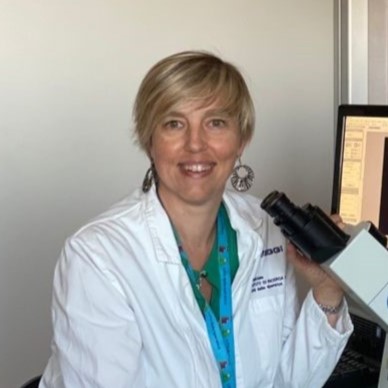
Prof. Michela Pozzobon
Curriculum Vitae
Scopus ID: 6602197182
Michela Pozzobon is associate professor in Applied Biology, at the Department of Women’s and Children’s Health, University of Padova.
She graduated in Pharmaceutical Chemistry at the University of Padua in 2000 and then joined the Dept. of Pharmaceutical Chemistry on an 18 month-fellowship for an EU project on polymer synthesis. Prof. Pozzobon spent 3 years (2002-2004) at the University of Oxford as a Research Assistant in the Oncology Group (Nuffield Dept. of Clinical Sciences, UK) under the supervision of Prof. David Y. Mason. In 2004, she joined the lab of Stem Cells and Regenerative Medicine, working with Dr. Paolo De Coppi, and she has coordinated the laboratory since 2010. During this time, Dr. Pozzobon enrolled in the PhD program in Tissue Engineering and Regenerative Medicine at the University of Padua, which was completed in 2008. Her research activity is focused on the study of the tissue biology and its application in regenerative medicine (cell therapy and tissue engineering), with a specific attention to the pediatric field and muscle related problems. Prof. Pozzobon is actively involved in national and international projects related to regenerative medicine and tumor microenvironment. She is member of the scientific advisory board of the italian group of stem-mesenchymal cells (GISM), Managing Committee member of the COST European project SPRINT on perinatal stem cells (2019-2023). Her expertise combines the training in oncology and the research on regenerative medicine using scaffolds, stem cells and extracellular vesicles.
She currently was awarded two projects (PRIN and UNIMPRESA) focused on the investigation of the mechanism of action of extracellular vesicles toward tissue regeneration.
Prof. Pozzobon is author of over 100 abstracts selected for poster or oral presentation; her scientific production counts 97 publications on peer review journals, in 34 of them she is the first, last or corresponding author. Google Scholar H index: 37. Scopus H index: 34.
